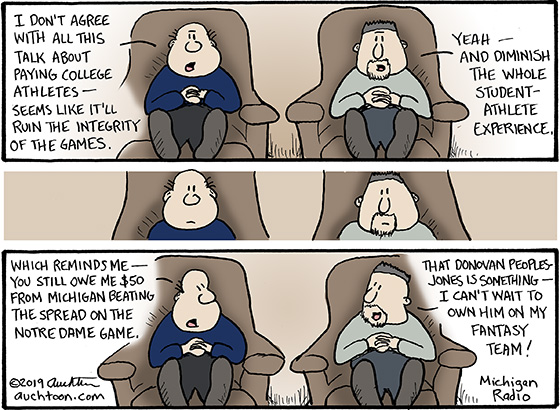Compensating Student Athletes

I was at a training conference this week for my day job. It was about the future of communications (specifically public relations and marketing communication), and while I would say that it was definitely worthwhile and I learned a lot, the best conversations I had weren’t about the conference topics. That seems often to be the case with me — what I find most enjoyable is not what I’m actually supposed to be doing.
But let’s leave my flaws there for now and move on to why I bring this up. One of the people I met was a former Michigan Wolverine football player. He is a relatively recent graduate, so in the course of conversation I asked about the new California law aimed at compensating college athletes, particularly those in high-profile, high-revenue sports like football. (This week two Michigan lawmakers introduced a similar law for our state.)
He had a number of very interesting insights and was able to speak with firsthand experience about the intensity of playing on a Division 1 team. He had concerns about how exactly athletes would be compensated and when. One method he pitched was to award a lump sum of money at the end of a collegiate career based on the amount of time spent in the system. Sort of a profit-sharing thing. It would include counseling on what to do with the money (with an emphasis on saving some for future health issues).
Interesting. I’m not sure whether that’s the best way to go, but my opinion really doesn’t matter. What mattered was to listen. Maybe I did learn something at the communication conference.

